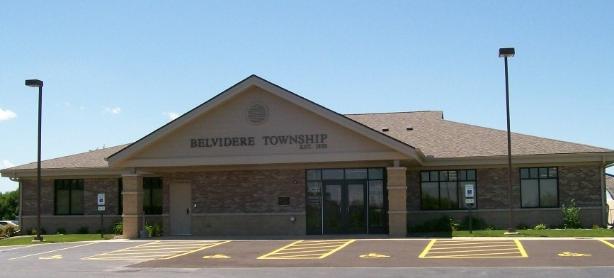Assessment Appeal Procedures
2023 Publication List – Boone County
Illinois statutes provide an administrative review process for property owners who believe their property assessment is not fair. The review procedure begins with the local assessor and if necessary, further appeals may be filed sequentially with the Boone County Board of Review, the Illinois Property Tax Appeal Board, and finally the Circuit Court.
Timing is a critical element of any appeal as there are specific time periods within which appeals must be filed. Failure to file a timely appeal will result in the taxpayer having little chance for relief until the subsequent year.
Assessor
Any appeal should begin with the local assessor where property owners can review their property record card on file. This is the public record of the characteristics used to determine the value of the property. Errors in square footage, number of fireplaces or bathrooms are easily corrected. In many cases, no further appeal is necessary. (The assessor may require an on site inspection of the property to verify property characteristics.) This is also the time to verify exemptions which may apply to your property.
Record review can take place any time during the year. However, depending upon the exact timing of the review, a correction may be retroactive for one year or applicable only for the following year.
Boone County Board of Review
2023 Commercial/Industrial Assessment Complaint Form
2023 Residential/Farm Assessment Complaint Form
A formal appeal of the assessed valuation may be filed with the Boone County Board of Review any time between June 1 and September 10 of the tax year or on or before 30 days after the publication of the township assessment roll in a local newspaper of general circulation, whichever is later.
All complaints to the Board of Review must be on the prescribed forms and conform to the established rules of the Board; late filings are not accepted. Hearings are scheduled at fifteen minute intervals or can be conducted by phone or simply by submitted documentation.
Appeals to the board can be based on a contention of law, uniformity and/or market value.
Contention of law complaints – These complaints focus on a violation of a specific requirement of the Property Tax Code. The area of the Code should be cited and an explanation of how the statutes were not followed as they pertain to the assessment under appeal should also be presented.
Uniformity/equity complaints – These complaints are filed when comparable properties (land or building portions of the assessment) are assessed less than that of the property under appeal. The most important aspect of these appeals lies in the similarity of the comparables selected for review. Properties with dissimilar characteristics are not required to be assessed similarly. Comparable houses are those properties displaying similar characteristics as those of the property under appeal. Areas of comparability include:
- Style of the house
- Square footage
- Exterior materials
- Amenities (pools, decks, basements, garages, etc)
- Neighborhood location
- Condition
Land comparables should be similar as to location, size, zoning, and external influences.
Market value complaints – These complaints are filed when the equalized assessed value (EAV), when converted to market value (EAV times 3), exceeds what the property might reasonably sell for if listed for sale in the open market.
The best evidence of value is a recent sale that conforms to the criteria of an arm’s length transaction and the definition of market value. Some of these criteria include adequate market exposure, willing buyer and seller, no pressure to sell and the parties to the transaction being unrelated.
Appraisals by licensed real estate appraisers are acceptable as evidence. In lieu of an appraisal, taxpayers can submit data on comparable sales, doing their own market analysis.
Once all the hearings have been held, the Board of Review notifies each appellant in writing as to their decision findings showing the original assessment, the Board’s opinion of the correct value, and a brief reason for their decision.
A property owner who is dissatisfied with the results of the assessment challenge has 30 days from the date of the Board’s decision to file an appeal with the Property Tax Appeal Board.
Property Tax Appeal Board
The name Property Tax Appeal Board (PTAB) is a misnomer since a taxpayer is not appealing the property tax but rather the equalized assessed valuation placed on the property by the Board of Review. The PTAB is a quasi-judicial state agency comprised of five members appointed by the Governor with the advice and consent of the Senate. The PTAB is empowered to hear appeals from local Boards of Review on the valuation of property for tax purposes.
Hearings before the PTAB are considered de novo, meaning, they are viewed as if the Board of Review had never heard or decided the case. New evidence may be submitted by any and all parties. The PTAB is required to base its decision on the weight of the evidence and upon equity. After all testimony has been examined, the PTAB will render a decision. These decisions review the facts as presented by all parties to the appeal, they may cite relevant court cases that pertain to the appeal and they typically explain the reasoning for the decision.
Decisions of the PTAB can be moved into the courts under the Administrative Review Law. The court will make a ruling on whether the PTAB’s decision was contrary to the evidence or if the decision was just.
Finally, an assessment appeal is not a complaint about higher taxes, but an attempt to prove the value is either incorrect or unfair relative to similar property. An appeal will be unsuccessful if the basis is high taxes. This issue must be taken up with officials from the taxing bodies.
